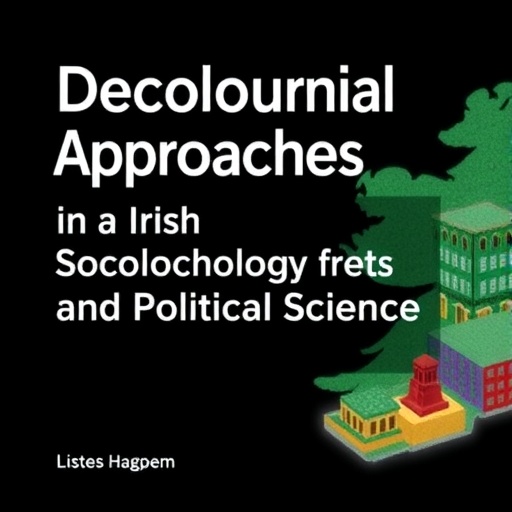In recent years, the discourse surrounding decolonial practices in higher education has gained significant momentum, particularly within the disciplines of sociology and political science. In a thought-provoking study set to be published in 2025, the researcher I. Eve delves into the perceptions of faculty regarding these practices within Irish higher education. This exploration is not merely academic; it touches upon the core values of equity, diversity, and inclusion that underpin the fabric of educational institutions.
Eve’s work illuminates the necessity for a critical examination of how colonial legacies persist within higher education systems and the imperative for transformative practices. The study specifically investigates how faculty members perceive and, in some instances, resist the integration of decolonial methodologies in their teaching and research. This examination is particularly vital in the context of the Irish educational landscape, which has historically been influenced by colonial narratives that shape both curriculum and pedagogical approaches.
Among those leading the charge for decolonial awareness in academic settings, Eve utilizes qualitative research methods, gathering firsthand accounts from faculty members across various institutions. Through interviews and surveys, the study aims to paint a comprehensive portrait of attitudes toward decolonization efforts. This approach ensures that the complexities of individual experiences and perspectives are captured, highlighting the nuances that often get lost in broader discussions about systemic change.
Crucially, Eve addresses the intersectionality of decolonization with contemporary issues of social justice and political awareness. Faculty members from different backgrounds share their views on how decolonial practices could enhance their ability to engage students from diverse cultures and perspectives. The responses indicate that while there is a growing awareness of the need for decolonial approaches, resistance remains—often rooted in traditional academic frameworks that privilege certain narratives over others.
Eve’s findings reveal a spectrum of responses, from enthusiastic support for decolonial practices to outright skepticism. Many faculty members express concern about the implications of changing curricular content, fearing potential backlash from constituents who may feel threatened by a shift away from established norms. This hesitance underscores the challenge of implementing decolonial practices within academic settings, where entrenched ideologies often prevail.
Moreover, the study indicates a generational divide in perceptions of decolonization. Younger faculty members, having been socialized in a climate where discussions of race, privilege, and power dynamics are more prominent, tend to advocate more strongly for decolonial initiatives. In contrast, older academics may exhibit reluctance, citing their own educational experiences and the perception that such changes undermine the integrity of academic rigor.
Eve further identifies institutional barriers that complicate the adoption of decolonial practices. Universities, often slow to adapt to reflective practices, face systemic challenges, including bureaucratic hurdles and lack of institutional support. Faculty members highlight the need for training programs and resources that equip them with the knowledge and skills necessary to engage meaningfully with decolonial frameworks.
Another important aspect of the study involves the role of students in driving decolonial change. Many faculty members acknowledge that student activism and demand for more inclusive curricula have pressured institutions to reassess their commitments to diversity and representation. This dynamic illustrates a burgeoning partnership between students and educators, suggesting that the future of decolonization efforts may hinge upon collaborative endeavors.
The impact of global movements advocating for equity and justice has also found resonance in Irish higher education. Eve references contemporary social movements that have sparked dialogues about decolonization and how they influence faculty perceptions. The Black Lives Matter movement, for instance, has propelled discussions about race and representation across global contexts, urging academic institutions to reconsider their roles in perpetuating systemic injustice.
Despite the challenges, Eve’s study ultimately points toward a hopeful horizon. Faculty members who embrace decolonial practices often report transformative outcomes, both for themselves and their students. They note enhanced engagement, increased critical thinking, and a more robust understanding of global interconnections as key benefits of decolonial methodologies. This positive feedback emphasizes the transformative power of education when it is rooted in inclusivity and equity.
Additionally, the role of interdisciplinary collaboration emerges as a theme within Eve’s analysis. Faculty members from different fields—sociology, political science, and beyond—discuss the potential of cross-disciplinary work to foster richer, more diverse academic conversations. Collaborative projects that integrate varied perspectives can serve as powerful catalysts for decolonization efforts, bridging gaps between traditional academic domains.
As higher education continues to grapple with issues of representation and historical injustices, Eve’s work serves as a timely contribution to the ongoing dialogue. It champions the importance of decolonial practices and highlights the need for educators to critically reflect on their roles within the larger socio-political landscape. In doing so, it challenges the status quo and invites scholars to envision a more equitable academic future.
In conclusion, I. Eve’s exploration of faculty perceptions regarding decolonial practices within sociology and political science in Irish higher education not only provides valuable insights but also lays the groundwork for further research. It depicts a complex terrain, marked by challenges, resistance, and transformative potential. As institutions continue to evolve in their approaches to education, embracing these decolonial methodologies could drive significant change, leading to richer academic experiences for students and a more inclusive educational environment.
The nuances and imperatives presented in Eve’s research advocate for ongoing discussions about decolonization in academia, emphasizing that the journey towards equity and justice in education is not just necessary but also profoundly transformative.
Subject of Research: Faculty perceptions of decolonial practices within sociology and political science in Irish higher education.
Article Title: Decolonial practices and faculty perceptions within sociology and political science in Irish higher education.
Article References:
Eve, I. Decolonial practices and faculty perceptions within sociology and political science in Irish higher education.
High Educ (2025). https://doi.org/10.1007/s10734-025-01522-z
Image Credits: AI Generated
DOI:
Keywords: decolonization, higher education, sociology, political science, equity, diversity, inclusion, Ireland, faculty perceptions, social justice.




